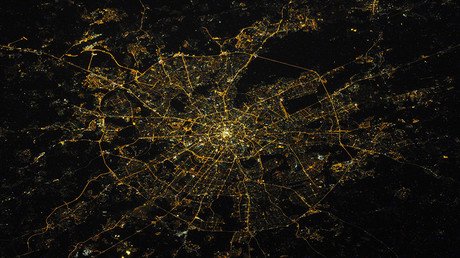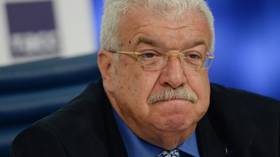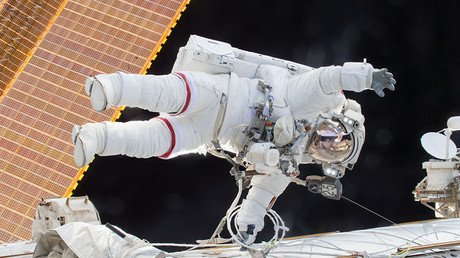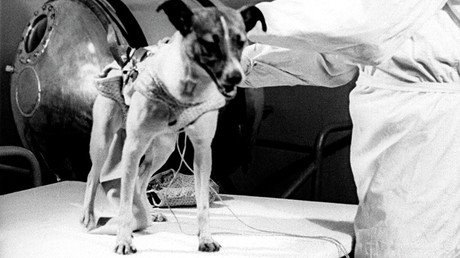Zero-g with comfort: Space travel will soon be available to many, Russian cosmonaut tells RT
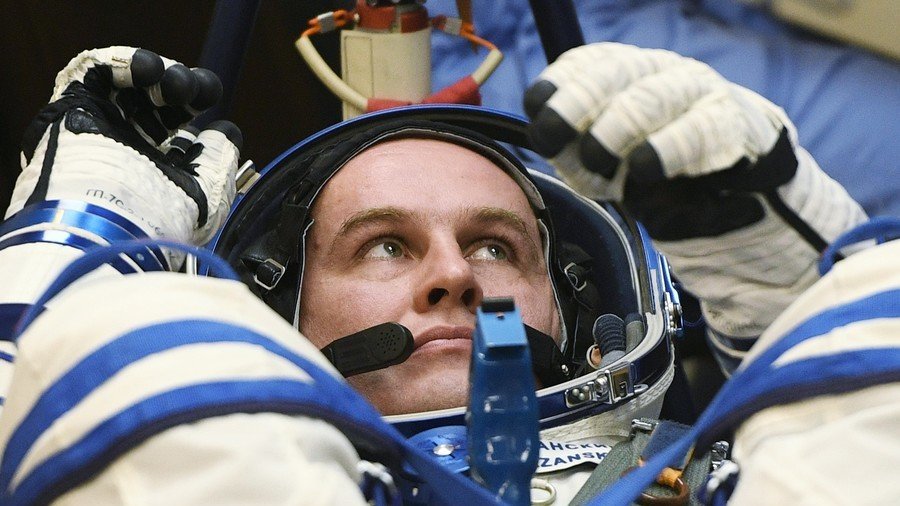
Many people will be able to visit space in the near future as there are no technological barriers to building a tourists’ space station and delivering guests there, Russian cosmonaut Sergey Ryazansky told RT.
“There are no barriers for space tourism from a technological point of view,” said Ryazansky, who returned from his second mission to the International Space Station (ISS) in mid-December. “It’s easy to build a tourist station with large windows, it is easy to deliver the ‘fat cats’ there… Of course, this, as of now, is quite an expensive trip. But I'm sure that many people will soon be able to afford it."
“We are ready to build and launch a fairly large number of spacecraft. This is, in general, what Western companies are doing right now – SpaceX, for example – and what Russia has been ready to do for a long time. But there’s no such mission because space for us is about the scientific component… what we have is a state-run program, not a commercial one,” he said.
The future space tourist will feel “very comfortable” in zero gravity as the human body “adapts quickly enough to it,” the 43-year old said. “There’s no gravity? That’s great. On the one hand, it’s strange. But, on the other hand, when the human embryo develops, it practically grows outside of gravitational environs… It’s wonderful in zero gravity. You can push off with one finger and fly though the whole station. You can… sit on the ceiling. It’s comfortable. The problems begin when you return back to Earth and are forced to get used to gravity again; get used to your hands and feet regaining their weight.”
However, it’s not microgravity but radiation that poses the main threat for those who will be taking part in lengthy interplanetary missions in the future, Ryazansky said.
It isn’t critical for the ISS, which is protected by the Earth’s geomagnetic field, but “if we fly to another planet, we’ll be crossing the radiation belts and the impact of radiation will be much greater,” he said. According to the cosmonaut, this issue hasn’t yet been fully resolved, but scientists are actively working on a “means of radiation protection and medicament support.”
Ryazansky welcomed the involvement of private companies and entrepreneurs in space exploration, including the likes of SpaceX CEO Elon Musk and Yuri Milner, founder of Breakthrough Initiatives. “I believe that the future belongs to such programs because anybody who has earned huge capital on his own is, of course, an extraordinary person. A person who can look into the future and see, predict what technologies will be in demand and choose the right direction for development,” he said.
Governments, which exclusively ran space programs in the past, are “more interested in short-term gains, but not long-term contribution. But rich people, enthusiasts can really make lasting projects, realizing that the profit will come in the future… Besides, there’s competition,” the cosmonaut explained. “Naturally, not one company, but several will emerge. They’ll immediately start to compete among themselves and make cheaper, more reliable technologies.”
However, Ryazansky, who has spent 304 days, 23 hours and 22 minutes in orbit, was not impressed with the Mars One project, which claims to be working on a one-way flight to Mars with the aim of establishing a permanent human colony there by 2032. “To be honest, this is purely a PR project. There is no technical reserve for this project… They don’t really have the aim of achieving what they say. They’re just attracting money through PR,” he said.
The cosmonaut added that he would, of course, like to participate in a genuine state-backed Mars mission, but not if it involved a one-way trip. “Any normal person would want to return” otherwise they “clearly have some psychological problems and characteristics, which make them a patient not even for a psychologist, but for a psychiatrist,” he said.
Although space is devoid of politics, Ryazansky believes that cooperative work beyond the atmosphere can serve peace and friendship on Earth. “Were it up to me, I’d send all the politicians into space. Just for them to see [the world] in a different way,” he said, adding that he’s convinced that it’s easier to make friends than war.
Ryazansky also spoke of the US moon landings between 1969 and 1972, which some skeptics claim never to have happened, affirming that “the Americans were on the moon. It’s a technically and historically proven fact.” As for why there haven’t been any new moon missions in recent decades, he said that “any project should have a task... At that time, our American colleagues fulfilled their task. They beat the Soviet Union to it, proved that they could do it. Further development of the project would require significant funds. We’re talking about a lunar base and a long-term stay. There is some kind of lunar geology for which, in general, they weren’t ready at that time. Technically, they have proven that it [travel to the moon] was possible. And indeed it is.”
READ MORE: Alien life? Bacteria ‘that had not been there’ found on ISS hull, Russian cosmonaut says
The cosmonaut was also asked about so-called Flat Earth societies, which have been gaining popularity and support online in recent years. He said that “it’s impossible to treat their theories seriously.”
“You know, I’d like to laugh with them because I sincerely believe that this some kind of trolling on a cosmic scale. I don’t believe that a person – in modern times, with the current level of education and science – can seriously believe that Earth sits on the backs of whales and turtles. I think this is such a child’s play… No matter what we prove, a person tries to troll you… He’s not satisfied with anything,” he said.
But Ryazansy wasn’t that skeptical about another popular conspiracy theory regarding the existence of aliens. “I’m sure that somewhere there is some kind of extraterrestrial life. But it’s just really far away. We just don’t have any irrefutable facts, proof of its existence. It’s just sad to be alone in this universe. And from the point of view of statistics, there are so many worlds that there is certainly some form of alien life in some place,” he said.
